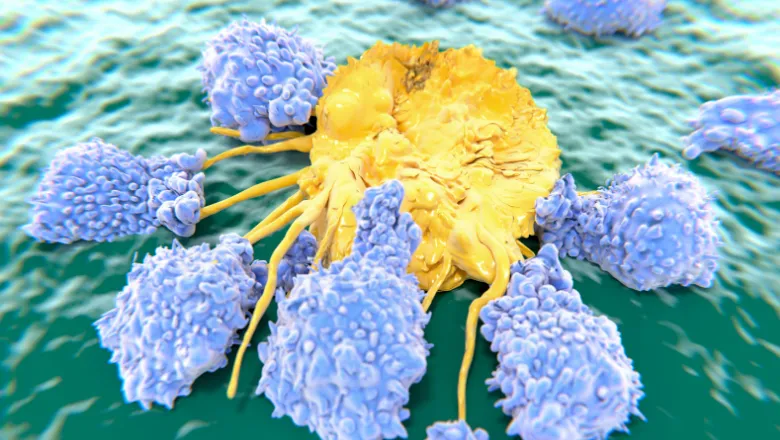pCAR has now been proven across a range of constructs and targets and Leucid is in a leading position to leverage these findings.
Dr John Maher, School of Cancer & Pharmaceutical Sciences
21 March 2022
New papers give fresh promise for CAR T-cell cancer immunotherapy
The two studies, published in Cell Reports Medicine and Froniters in Immunology, have provided new insights into a specific type of CAR T-cell immunotherapy called parallel CAR.

Both publications have been co-authored by Dr John Maher, who is based in the School of Cancer & Pharmaceutical Sciences and is the Chief Scientific Officer of Leucid Bio, a spin-off company developing CAR T-cell immunotherapies.
CAR T-cell immunotherapies refer to the process by which T-cells (a type of cell in the immune system) are modified to target and destroy cancer cells. This requires editing the T-cell genome to create the CAR protein, enabling the T-cell to specifically bind with, and attack, cancer cells.
The NHS currently only offers CAR T-cells as blood cancers treatments; with Leucid Bio, Dr Maher’s group are designing CAR T-cell therapy for solid tumours.
The two papers focus on pCAR T-cells pioneered by Dr Maher. This new T-cell is designed with two costimulatory domains on the cell membrane. Costimulation refers to the extra booster signal a T-cell requires to trigger the immune response against the tumour.
The first paper, published in Cell Reports Medicine, designed receptors to trigger costimulation in pCAR T-cells. Results showed that pCAR T-cells continued to multiply and send chemical signals to induce an immune response against the tumour, showing greater anti-tumour activity than traditional CAR T-cells.
For the second paper, published in Frontiers in Immunology, the authors evaluated the ability of pCAR T-cells to target the ligand CD19. This is a protein expressed in tumours that can bind to the receptors of other cells, potentially allowing engineered (p)CAR T-cells to bind onto and destroy tumours.
The paper analysed pCAR T-cells that specifically bind to CD19, with results showing they could bind to a broad range of CD19 variant receptors, increasing the ability to re-stimulate an immune response against the tumour and reducing markers of exhaustion. These characteristics demonstrate pCAR's improved efficacy when compared to previous CAR T-cell therapies.
These recently published studies highlight the strength of the translational research done at John’s CAR Mechanics research group and Leucid Bio. I am honored to work with John in translating his findings into patient-driven outcomes.
Artin Moussavi, Chief Executive Officer of Leucid Bio

